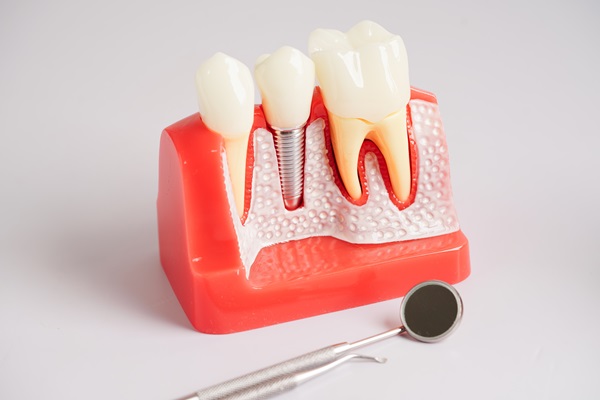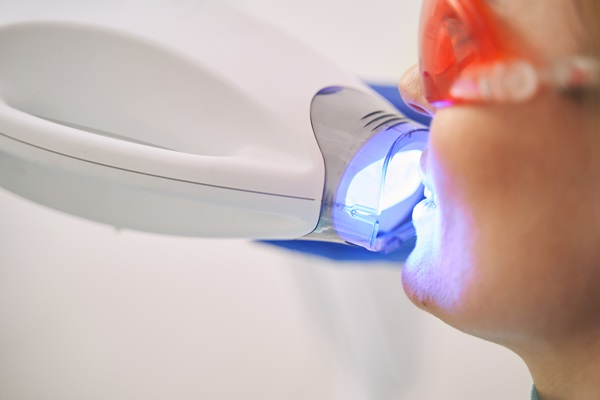Tips for Root Canal Aftercare

A root canal is a dental technique devised to treat infection or damage within the pulp (the innermost chamber) of the tooth. While the procedure has a reputation for being painful, thanks to anesthetics, it is often no more uncomfortable than getting a filling.
While there is no recovery period after getting a root canal, proper aftercare is crucial to ensure a smooth recovery and prevent complications. Here are some essential tips for root canal aftercare.
Root canal aftercare tips
Here are some simple things patients can do to ensure recovery goes smoothly after getting a root canal:
1. Follow pain management advice provided by your dentist
Many patients do not experience significant pain following root canal therapy, and those who do are typically advised to use over-the-counter painkillers. Patients should not exceed the recommended dosage of these drugs for any reason, and those who experience considerable pain should visit a dentist immediately.
2. Try not to chew on the treated side
The root canal site will need some time to heal, and the tooth may be temporarily fragile until a permanent filling or crown is placed. Patients should try to avoid chewing food on that side of their mouth for a few days to prevent any damage or undue pressure on the treated tooth.
3. Practice good oral hygiene
Keeping the mouth clean after a root canal prevents infections and promotes healing. Patients should continue with their regular oral hygiene routine, including brushing and flossing. However, be gentle around the treated area to avoid irritating the tissues there.
4. Look out for inflammation
While some swelling is expected after a root canal, excessive swelling or the presence of an abscess could indicate an infection. Cold compresses can help reduce minor swelling. If swelling persists or seems severe, reach out to your dentist.
5. Avoid crunchy or hard foods
Patients should stick to soft foods for a few days after root canal therapy to minimize the risk of damaging the treated tooth. Soups, yogurts, mashed potatoes, and smoothies are good choices. Avoid anything too hot or cold, as the tooth may be temporarily sensitive.
6. Refrain from strenuous activities
Patients should look to rest and limit strenuous activities for a day or two after root canals. Engaging in vigorous activities can increase blood flow to the mouth, potentially prolonging swelling or bleeding.
7. Show up for follow-up appointments
Patients are often scheduled for follow-up appointments after root canals so that fillings or crowns can be used to repair the treated tooth. Attending this and any other follow-up visits recommended by the dentist is vital to ensure the tooth is healing correctly.
8. Know what the symptoms of complications look like
While complications after a root canal are rare, it is essential to be vigilant. Persistent pain, increased sensitivity, swelling, or the appearance of a bump on the gums near the treated tooth should be addressed immediately.
Root canals save teeth
A root canal is a valuable procedure that can save a damaged or infected tooth, eliminating the need for extraction. You can ensure a smoother recovery process by following the tips above. Always communicate with your dentist about any concerns or questions about your root canal aftercare. Give us a call or drop by our Rego Park clinic for more aftercare tips.
Request an appointment here: https://regopark.aaadentalny.com or call Rego Park Dental at (718) 275-3311 for an appointment in our Rego Park office.
Check out what others are saying about our dental services on Yelp: Root Canal in Rego Park, NY.
Recent Posts
If you have an infection in one of your teeth and needs to be removed, you may need root canal treatment. This procedure will remove the infection from the tooth's root, where most infections start. The tooth will then be re-implanted with a crown, filling, or bridge to cover the space left by the dead…
Preventive dentistry can protect your teeth and gums. Its main goal is to keep dental problems away. It also aims to detect any oral issue early to prevent it from worsening. Preventive dentistry clinics have different ways to help keep your dental health in top condition. If you want to know how preventive dentistry can…
A fractured tooth requires emergency dentistry if the damage to the tooth affects its inner chambers. A fractured tooth can be caused by a variety of things like trauma from sports/accidents, biting on hard foods and bruxism.The COVID-19 pandemic has led to many dentists limiting their services to only emergency dentistry to reduce the risk…
Following the treatment of periodontal disease, it is vital that a patient keeps the Dental Checkup appointments that the dentist recommends. Periodontal maintenance, which typically requires dental check-ups every three months post-treatment, is essential for continuing results. Without routine maintenance, the patient risks a relapse in oral health.Periodontal disease is a chronic oral health condition…



